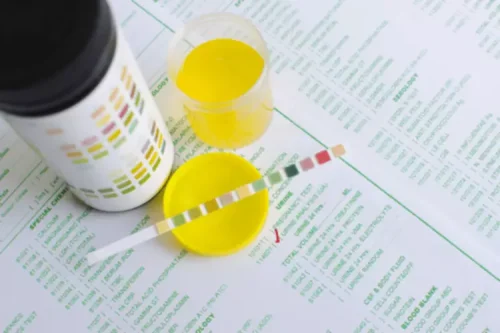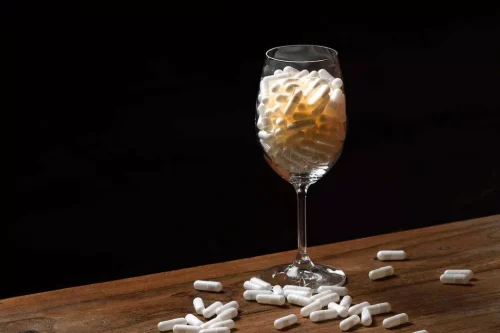Signs That An Alcoholic Is Drinking Again & Has Relapsed

Cognitive behavioral therapy (CBT) is an important tool for preventing relapses. It teaches you how to overcome negative thinking, which is often at the heart of a relapse. For example, you might believe that you can’t quit, that recovery takes too much drinking again after sobriety effort, and that you won’t enjoy life as much without alcohol. Surround yourself with supportive loved ones, attend self-help group meetings, and/or go to therapy sessions. Having occasional cravings or thoughts of drinking is normal during recovery.

What Is a Relapse, and Is Relapse a Failure?

Recovery from AUD is marked by stages of abstinence, withdrawal, repair, and growth. While the process may take several years, the outcome is a happier, healthier life where you have the freedom to fulfill your full potential. People often need to address past trauma or familial issues during this time. Since withdrawal symptoms tend to ebb and flow, you may be tempted to feel like you’re not making progress ― even though in reality, you’ve come a long way.

Reach out now and join our supportive
- In a recent study on abstinence versus moderation, recovering alcoholics focused on their recovery counseling longer and reported a higher quality of life when practicing abstinence.
- Going from an alcohol dependency to not drinking at all can seem like a significant obstacle for those seeking help.
- Planning exactly how you’ll say no—in a quick, polite, and convincing way—can make it easier for you to stick with your convictions and avoid a spiral of uncomfortable excuses.
- Medication-assisted treatment is a method of treating substance use disorders through a combination of medication, counseling, and behavioral therapy.
It’s treatable, but if untreated, it can lead to serious destruction and even death. Creating a relapse prevention plan involves reflecting on past experiences, recognizing potential pitfalls, and developing a personalized approach to managing cravings and triggers. This plan should be regularly reviewed and updated to ensure it remains relevant and effective in supporting long-term recovery and continuous sobriety. Social situations can be challenging for those in recovery, with the pressure to drink often present in various settings.
Arguments for and Against Allowing Alcoholics to Drink in Moderation
Some treatment facilities also offer contingency management, which uses positive reinforcement to promote abstinence from drugs and alcohol. Multidimensional family therapy is another form of outpatient treatment. This therapy is developed for adolescents with drug use problems and https://ecosoberhouse.com/ their families. It addresses a wide range of influences on drug use patterns and helps improve overall family functioning. Licensed residential treatment facilities provide 24-hour structured and intensive treatment and care, including safe accommodation and medical assistance.
Signs of an Alcohol Relapse
Not only do others in your support group understand what you are going through, but they also can provide valuable education and guidance, including tips on avoiding relapse. The dangers of relapse include potentially severe physical and mental reactions when substance use resumes. If you find yourself in an emotional relapse, try to learn more about how you can practice self-care.
Relapsing is when an individual returns to drinking or using drugs after a period of sobriety, which differs from a lapse where they briefly drink but then quickly stop again. Resources such as SAMHSA’s National Helpline, aftercare support groups, and mutual help organizations like Alcoholics Anonymous (AA) and Narcotics Anonymous (NA) can provide invaluable support for those in recovery. These resources offer a secure and encouraging atmosphere to share stories, gain inspiration from others in similar circumstances, and foster a sense of community and responsibility in maintaining long-term sobriety.
- Environmental factors, such as family history, peer pressure, and stress, can also contribute to a person’s risk of developing AUD.
- They are usually aimed at helping people live a substance-free, crime-free, sober life following treatment.
- Your liver metabolizes (breaks down) alcohol and converts it into acetaldehyde, a toxin and carcinogen.
- The additional issue with this decreased tolerance is that the drinker usually returns to drinking the same amount he or she used to before needing to stop.
How Alcohol Affects the Body and Brain
Abstinence is essential for recovering alcoholics to reach their goals and maintain their sobriety. By eliminating the temptation of alcohol completely, individuals can focus on their recovery journey without the constant struggle of resisting the urge to drink. This unwavering commitment to sobriety can lead to a more fulfilling life than when they were drinking alcohol, even after quitting drinking. When people drink after a period of abstinence, the body experiences shock. Tolerance to the toxic effects of alcohol on the human system is lowered.
- Once a person with AUD gets through the initial withdrawal process, most symptoms ease or stop, indicating the body is adjusting to the absence of alcohol.
- Battling substance use can be challenging and feel impossible at times.
- When a person with an AUD resumes drinking, it is usually the alcohol that gains all of the power.
- As the body changes and learns to “tolerate” regularly consumed amounts of alcohol, it increasingly demands higher amounts to trigger the effects previously achieved with less alcohol.
- When explaining this concept to your non-alcoholic friends, though, you may have to give them more detail so that they can understand why you simultaneously want to be sober and wish you could drink at the same time.
- However, studies suggest that relapse happens gradually and typically progresses through 3 stages.

Hale got real about making the decision in January 2022 to start her sobriety journey. Shorter treatment times of around three months have limited effectiveness, in both inpatient and outpatient settings, according to the National Institute on Drug Abuse. “If you experience stigma or shame in one setting, don’t be afraid to seek help in a different medical setting,” says Tetrault. According to Jeanette Tetrault, MD, an addiction medicine specialist at Yale Medicine, the terms “sobering up” or “getting sober” are stigmatizing.

As the body changes and learns to “tolerate” regularly consumed amounts of alcohol, it increasingly demands higher amounts to trigger the effects previously achieved with less alcohol. If a person stops drinking after tolerance, dependence, or addiction takes hold, they will experience withdrawal symptoms. Managing cravings and triggers is a crucial aspect of maintaining sobriety, as they can lead to relapse if not addressed properly. By staying mindful of the following factors, individuals can develop effective coping strategies to resist the urge to drink. By addressing emotional triggers head-on, recovering alcoholics can reduce the likelihood of relapse and maintain their commitment to a sober life. Attempting to drink alcohol after achieving sobriety can be a dangerous path.
Get Started
- Another sign of self-isolation is failing to follow through on plans and personal responsibilities.
- As the condition advances, the physical and psychological effects become more severe, and the ability to control drinking diminishes.
- When you’ve been drinking too much for an extended period, you may experience withdrawal symptoms when you quit.
- They eventually drink and feel a loss of control and a huge sense of guilt.
Heavy or ongoing alcohol consumption increases the risk of liver diseases, such as cirrhosis (severe scarring of the liver). Programs like sober living homes, motivational phone calls, alumni programs, and mutual-help groups provide a level of support that can continue in the short-term or as needed for the rest of your life. As explained in a study from the Journal of Substance Abuse Treatment, even something as simple as a motivational texting program can better your chances of avoiding relapse. For many, returning to daily life after treatment means returning home to family, which is why family can be the strongest social support system. However, relationships within the family may have been impacted by substance misuse and therefore, require mending.